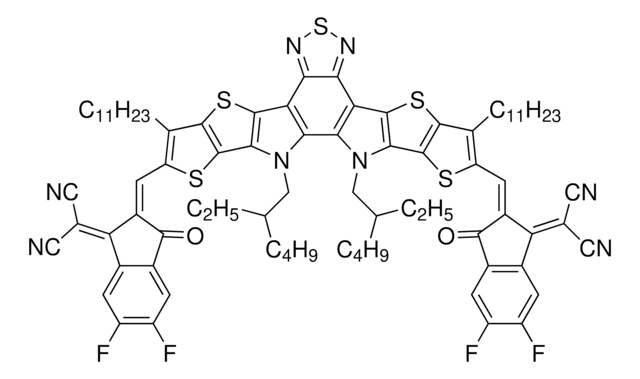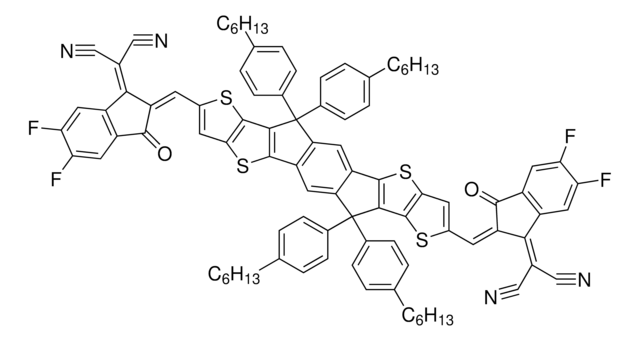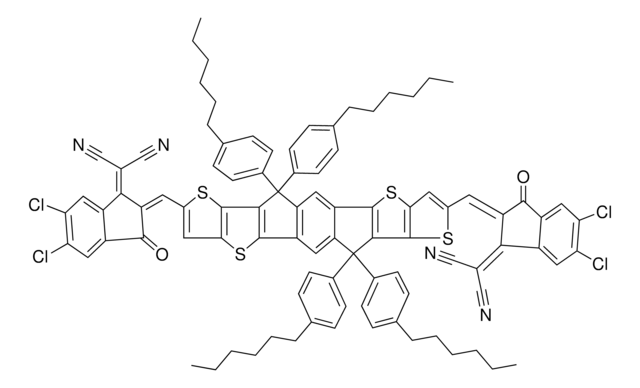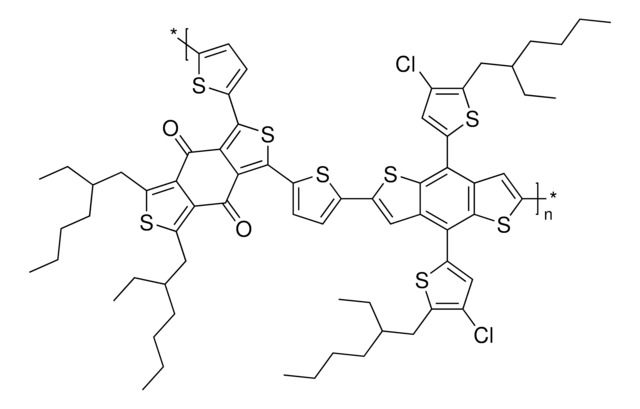913006
IEICO
≥99%
Sinónimos:
2,2′-((2Z,2′Z)-((5,5′-bis(4,4,9,9-tetrakis(4-hexylphenyl)-4,9-dihydro-s-indaceno[1,2-b:5,6-b′]dithiophene-2,7-diyl)bis(4-((2- ethylhexyl)oxy)thiophene-5,2-diyl))bis(methanylylidene))bis-(3-oxo-2,3-dihydro-1H-indene-2,1-diylidene))dimalononitrile, 2,2′-[[4,4,9,9-tetrakis(4-hexylphenyl)-4,9-dihydro-s-indaceno[1,2-b:5,6-b′]dithiophene-2,7-diyl]bis[[4-[(2-ethylhexyl)oxy]-5,2-thiophenediyl]-(Z)-methylidyne(3-oxo-1H-indene-2,1(3H)-diylidene)]]bis-propanedinitrile
About This Item
Productos recomendados
descripción
Band gap: Eg=1.34 eV
Nivel de calidad
Análisis
≥99%
formulario
solid
color
dark
Energía orbital
HOMO -5.32 eV
LUMO -3.95 eV
Categorías relacionadas
Aplicación
Código de clase de almacenamiento
11 - Combustible Solids
Clase de riesgo para el agua (WGK)
WGK 3
Punto de inflamabilidad (°F)
Not applicable
Punto de inflamabilidad (°C)
Not applicable
Certificados de análisis (COA)
Busque Certificados de análisis (COA) introduciendo el número de lote del producto. Los números de lote se encuentran en la etiqueta del producto después de las palabras «Lot» o «Batch»
¿Ya tiene este producto?
Encuentre la documentación para los productos que ha comprado recientemente en la Biblioteca de documentos.
Nuestro equipo de científicos tiene experiencia en todas las áreas de investigación: Ciencias de la vida, Ciencia de los materiales, Síntesis química, Cromatografía, Analítica y muchas otras.
Póngase en contacto con el Servicio técnico








